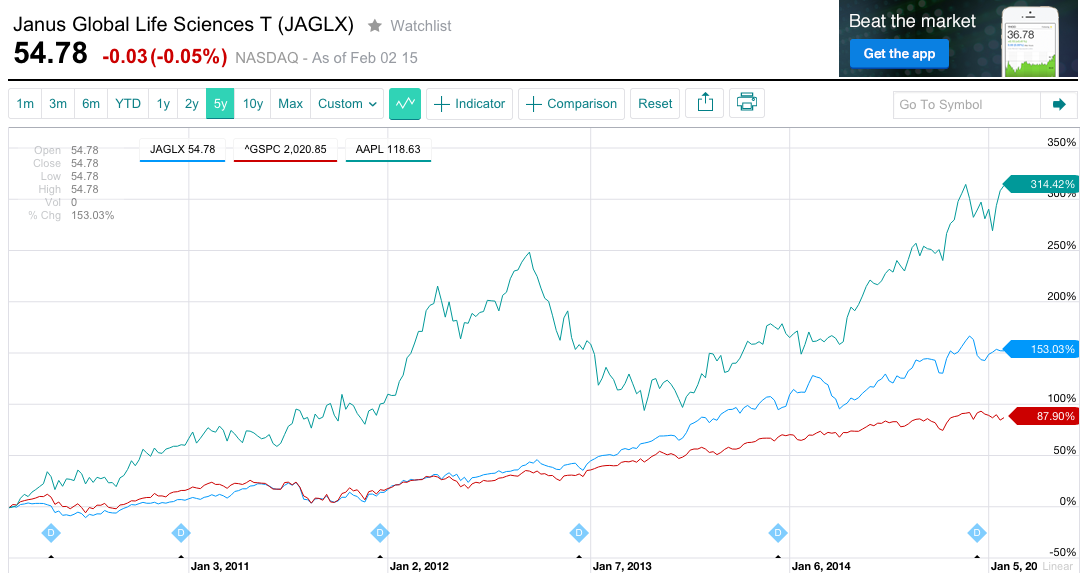I am a complete newbie to investment and have already gone through a lot of reading materials. I now have some basic idea about terminology etc. but still have a couple of questions for which I couldn't find answers:
High Expense Ratio - High Returns (Mutual funds) vs Low Expense Ratio - Low returns: If I understand correctly, index funds are best suited for beginners as they have low expenses and moderate returns. For example, VFINX is one of the most recommended ones. Its return is pretty good with low expense of .17%. Other mutual funds like JAGLX have almost double the return of VFINX but with an expense ratio of .90%. There are many others like JAGLX. Which category should I go with? Would high expense ratio and other costs offset return by an amount so that final return is same as an index fund?
Different Accounts for different funds: Is it advisable to buy the fund from the company that owns it in order to avoid transaction fees? For example VFINX from Vanguard and SWTSX from Schwab.
High turnover rates on bond funds: As per my understanding, one should also buy a percentage of bond funds apart from stock funds. One example is: SWLBX (Schwab Total Bond Market) but I see that these bond funds have a high turnover rate of 50+%. Any idea why it is so high compared to equity funds?

